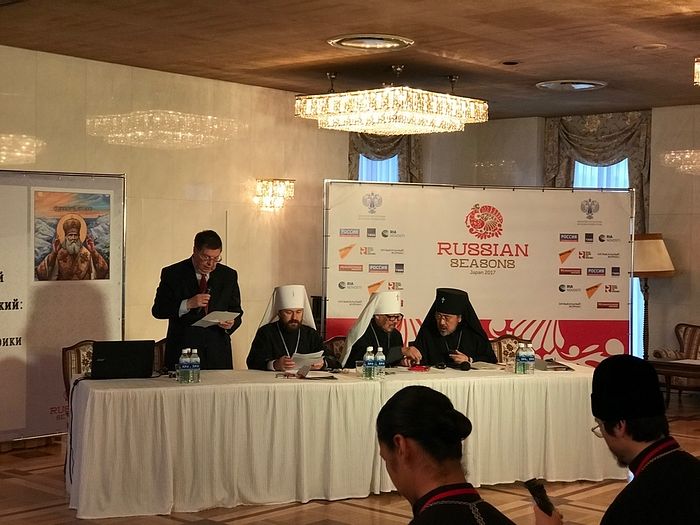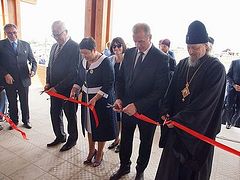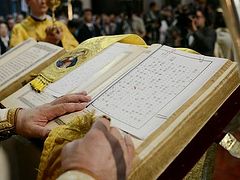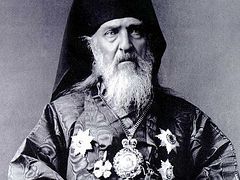Tokyo, November 9, 2017
A conference was held yesterday in the Russian embassy in Japan dedicated to the great Russian missionary saints Innocent of Moscow and Nicholas of Japan. The international academic conference “Sts. Nicholas of Japan and Innocent of Moscow: The Culture of the Peoples of Russia, Japan, and America” is dedicated to the 220th anniversary of the birth of St. Innocent the metropolitan of Moscow and Kolomna, and apostle to Siberia and America, the spiritual mentor of the Equal-to-the-Apostles Nicholas of Japan, reports patriarchia.ru.
The conference was organized by the Russian Ministry of Culture with the support of the Department for External Church Relations of the Moscow Patriarchate (DECR), the Russian diplomatic offices in Japan, the Tokyo Federal Agency for the Affairs of the Commonwealth of Independent States, compatriots living abroad, and international humanitarian organizations.
The report “The Equal-to-the-Apostles Nicholas of Japan and St. Innocent of Moscow—Saints Connecting Peoples” of the chairman of the DECR His Eminence Metropolitan Hilarion (Alfeyev) of Volokolamsk opened the conference.
Addressing those present, Met. Hilarion emphasized the connection of spirituality of Russia with the countries it missionized Japan and America.
“Our meeting in Japan is taking place in the 220th year since the birth of a true son of the Russian Orthodox Church, a prominent missionary, known for his missionary works as the Apostle to Siberia and America, St. innocent of Moscow. St. innocent of Moscow, already having 40 years of experience in apostolic ministry, was able to show the young 24-year-old hieromonk Nikolai (Kasatkin) where to exert effort, what to focus his labors on, that his chosen mission to the Japanese people would have positive results,” His Eminence reflected.
The metropolitan went on to recount St. Innocent’s missionary labors, beginning in 1823 as a married priest. Faithfully taking his family to far-away North America, St. Innocent labored tirelessly, gaining tens of thousands of spiritual children in addition to his children in the flesh. He studied the language and culture of the Aleut peoples, created an alphabet based on Cyrillic, and translated the Gospel, a catechism, and several prayers and hymns.
As Met. Hilarion recounted, after the death of his wife in 1840, then-Archpriest John took monastic vows with the name Innocent. He was elevated to the episcopal rank and continued to serve the Alaskan peoples, giving them nearly half a century altogether. He was transferred to the see of Moscow at age 70, but he continued his missionary labors, establishing the Japanese Orthodox spiritual mission in 1870, headed by Archimandrite Nikolai (Kasatkin), the future saint. He established dioceses in Alaska and called for Archimandrite Nikolai to be appointed as bishop in Japan, though he did not see this carried out, reposing in 1879.
His Eminence also noted the great contributions of both saints to the literature and culture of the respective countries in which they labored, while their spiritual labors were, of course, of highest priority: “St. Nikolai made every possible and impossible effort that the Japanese might themselves create their own spiritual world, their own Church. In this aspiration is clearly seen the continuity of the missionary school of St. Innocent, which was characterized by openness, accessibility, ease of communication, tenderness, tolerance towards people, and the desire to give space for their creativity and initiative.”
Several other presentations were also made on various aspects of the ministries of St. Innocent and St. Nicholas by Metropolitan Daniel of Tokyo and All Japan, Archbishop Seraphim of Sendai, clergy of the Japanese and Russian Orthodox Churches, and a number of professors and academics.
Participants were also shown Met. Hilarion’s new film “Orthodoxy in Japan.”




